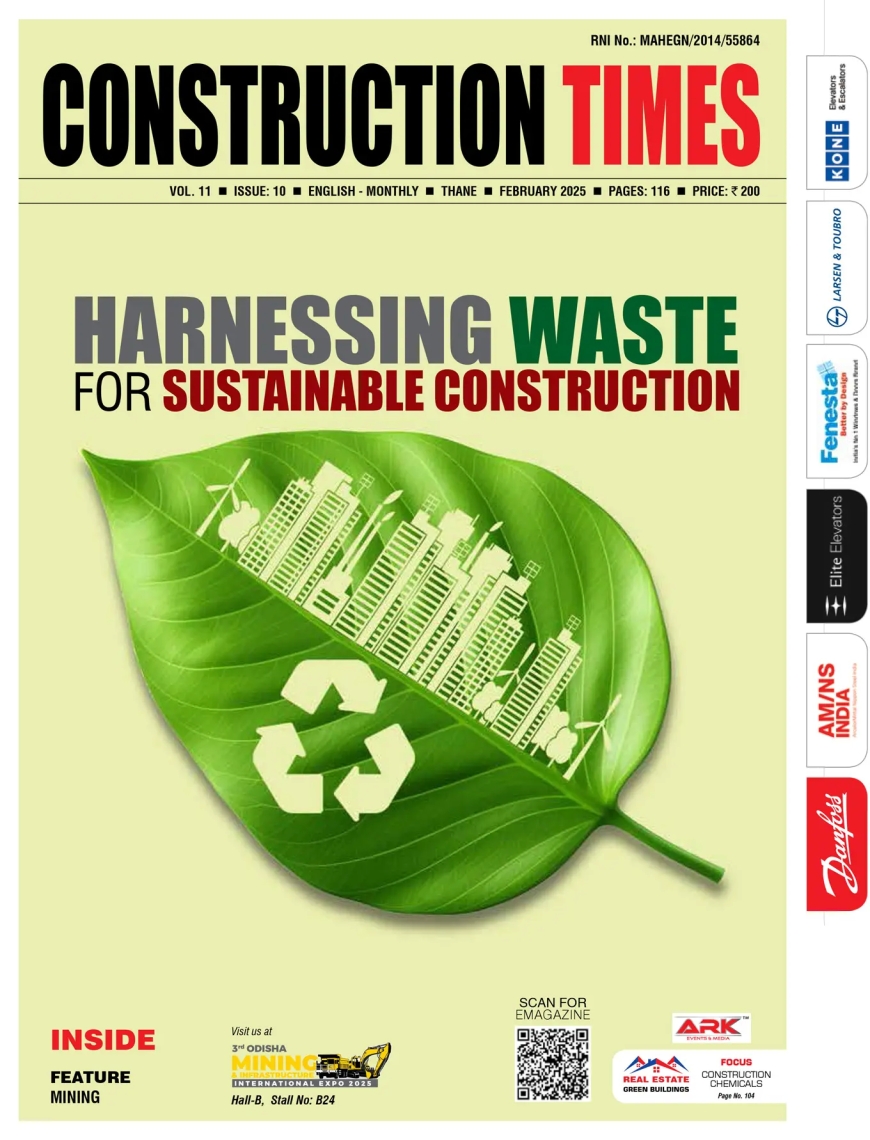Key Learning from the Crisis
An extract from the Research Report on 'Covid-19, Impact on the Indian RE Sector' by ANAROCK. To beat any crisis, all industries innovate and rectify their inherent flaws. And, Indian real estate is no different. It has been adapting to rapidly changing environment. It now realises that extraordinary situations such as Covid-19 warrant inimitable measures.

An extract from the Research Report on 'Covid-19, Impact on the Indian RE Sector' by ANAROCK.
To beat any crisis, all industries innovate and rectify their inherent flaws. And, Indian real estate is no different. It has been adapting to rapidly changing environment. It now realises that extraordinary situations such as Covid-19 warrant inimitable measures. Decisions to mitigate or combat crisis arises from deep introspection of the situation and business requirements. The learnings may not be uniform across the entire spectrum of industries, but some rudimentary practices are universal. Indian real estate sector comprising developers and service providers along with occupiers would have deliberated on the following factors to deal with global Covid-19 pandemic.
1- Business Continuity Planning
Business continuity and disaster recovery planning prevents against disruptions and subsequent recovery from situations that potentially threat productivity and jeopardise the services of any company. This is critical during times of exigencies when it becomes challenging to maintain continuity of services. While most multinationals already have a contingency plan in place during eventualities, these plans are predominantly localised to a certain geography. In India, the preparedness was limited to bandhs or curfews that get imposed. Many large corporations have operations spread across various cities and thus far been able to mitigate such crisis. However, in situations like COVID-19 such plans are impossible to implement. Hence, the policy needs to be revisited and reinforced in the light of the prevailing situation to ensure better preparedness.
2- Space Optimisation for Cost Rationalisation
Prevailing crisis of COVID-19 will result in innovative solutions or rostered work shifts and timings. Many companies, depending on their nature of businesses will reduce their dependency on utilisation of office premises and resources. This may result in operating from smaller spaces which will save rent and maintenance cost. This can be an eye opener for many to revisit their plans and create case studies for space optimisations. It will be an important measure to rationalise cost, particularly in times of turbulence.
3- Adaption to Technology
Since travel restrictions were imposed, virtual meetings gained prominence. This practice needs to be continued even after the pandemic recedes, so as to lower the cost of operations. Companies who have adapted to artificial intelligence (AI) and virtual reality (VR) are likely to be better prepared for any future disruptions. Real estate companies that have already implemented such practices would have continued with some business trickling in even during these distress times. Investment in technology upgrade will not only help companies tide during such crisis but will yield rich dividends in the long term.
4- Focus on Online Presence and Transactions
Most real estate businesses are currently highly dependent on physical visits, face-to-face discussions and transactions. In the connected world of the internet, industry leaders have been propagating the adoption of an omnichannel strategy. However, many businesses have not invested enough time and effort to make it meaningful. With 451 million monthly active internet users, India is now second to China in terms of internet users, as per the Internet and Mobile Association of India (IMAI). However, with the penetration rate is just 36% compared to China which has 61.2%, the upside potential is phenomenal. It is thus imperative to increase online presence as the digital mode of business including product display, discussions, comparison and transactions is relatively less affected by such pandemic and other crisis-like situations that deter consumers from physically visiting business centers.
5- Risk Management Practices
Practices and policies pertaining to risk management need to be taken seriously by all businesses and not be restricted to the financial sector. It needs to be practiced with all earnestness to improve the preparedness for any future disasters and ability to mitigate situations. Incessant monitoring and preparedness can help to focus the actions and steps to be taken at the time of a crisis and help protect and preserve business assets. Real estate developments require deployment of large volumes of stock and machinery. To procure and use them, huge cost is incurred. Hence their safety and availability become important and critical to a business. Developers and contractors need to focus on risk management more effectively to ensure efficiency and profitability.
6- Focus on Liquidity and Cash Flow Management: The Need of the Hour
Businesses across various sectors have been previously impacted by several short-term and long-term disruptions. With changing global environment, the frequency of such disruptions has been on a rise. In the Indian context, demonetization, implementation of GST, RERA, natural calamities such as earthquake, tsunami, floods, are instances that have affected businesses in the recent past. As these instances emerge as a new normal, there is a dire need for the businesses to focus on liquidity and cash flow management to ride over the uncertain times. Amidst such uncertain situations, companies need to deliberate on a prudent trade-off between pushing the top line and concurrently managing the cash flows. When unforeseen events demand business continuity, cash is the king and only businesses that have a robust cash flow management can ride over the tide. In the current COVID-19 pandemic situation, the governments and central banks across the world are introducing innovative measures and stimulus packages to ensure that the economy keeps on ticking during this tough time.
Hits: 244
















